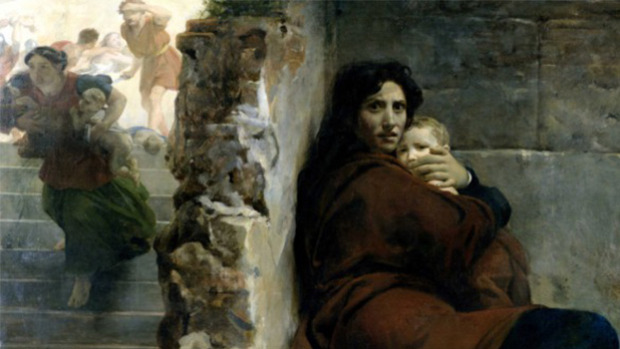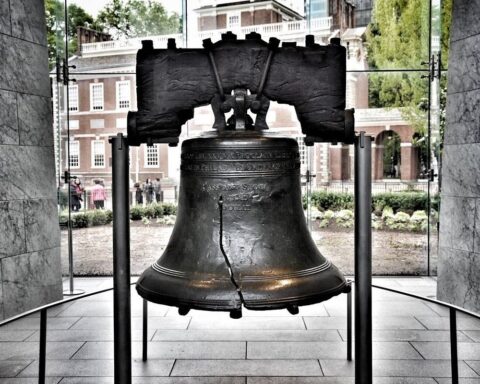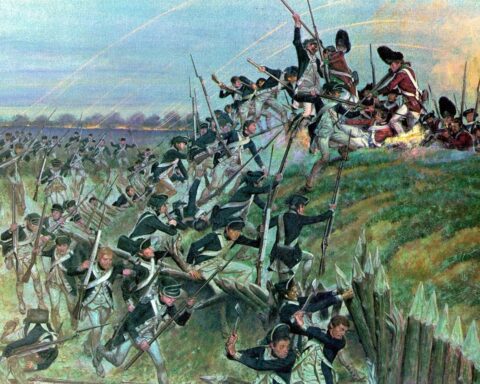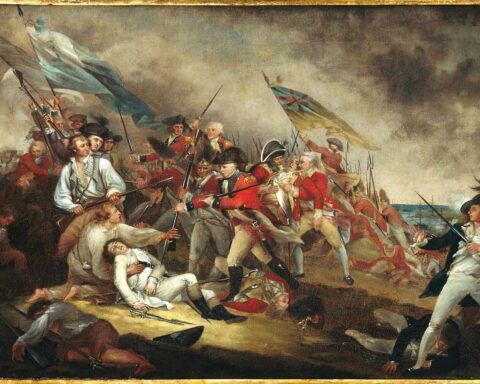Editor’s note: The following is excerpted from Giovanni Papini’s The Life of Christ. While Papini’s interpretations of Scripture are sometimes questionable or even false, and though he is given to intellectual musings at odds with Divine revelation, he nevertheless depicts with great vividness the characters and cultures of Rome and the Ancient Near East.
Octavius Augustus
When Christ appeared upon the earth, criminals ruled the world unopposed. He was born subject to two sovereigns, the stronger far away at Rome, the weaker and wickeder close at hand in Judea.
One lucky adventurer after wholesale slaughter had seized the empire, another had murdered his way to the throne of David and Solomon. Each rose to high position through trickery, through civil wars, betrayals, cruelty, massacres. They were born to understand one another, were, as a matter of fact, friends and accomplices, as far as was possible between a subordinate rascal and his rascal chief.
Son of the usurer of Velletri, Augustus showed himself cowardly in war and vindictive in victory, false to his friends, cruel in reprisals. To a condemned man who begged only for burial he answered, “That is the business of the vultures.” To the Perugians begging for mercy during the massacre he cried, “Moriendum esse!” On a mere suspicion he wanted to tear out the eyes of the Praetor Quintus Gallius before ordering his throat cut. Possessed of the empire, with his enemies crushed and scattered, with the power all in his own hands, he put on a mask of mildness and of his youthful vices kept only his lust. It was told of him, that in his youth, he had sold his body twice, first to Caesar, and again in Spain to Hirtius for 300,000 sestertia. Now he amused himself with the wives of his friends, with almost public adulteries, and with posing as the restorer of morality.
This filthy, sickly man was sovereign of the western world when Jesus was born, nor did he ever know that One had been born who would bring the dissolution of all that he had founded. The facile philosophy of the plump little plagiarist Horace was enough for him, “To-day let us enjoy wine and love: hopeless death awaits us: there is not a day to be lost!” In vain Virgil, the man of the countryside, friend of woods, of quiet flocks and golden bees, he who had gone down with Aeneas to see the sufferers in Avernus and poured his restless melancholy into the music of poetry; in vain Virgil, the loving pious Virgil, had foretold a new era, a new order and a new race, a kingdom of heaven less spiritual, less brilliant than that which Jesus was to announce, but infinitely nobler and purer than the kingdom of Hell which was then making ready. In vain, because Augustus saw in these words only a pastoral fancy and perhaps believed that he, the corrupt master of the corrupt, was the proclaimed Saviour and restorer of the reign of Saturn.
But his vassal of Judea, his great Oriental client, may have had a presentiment of the birth of Jesus, of the true King, who was coming to supplant the king of evil.
Herod the Great
Herod was a monster, one of the most perfidious monsters of the many which have sprung from the burning deserts of the East. He was not a Jew, nor a Greek, nor a Roman. He was an Idumean, a barbarian who prostrated himself before Rome, and aped the Greeks the better to secure his dominion over the Jews. Son of a traitor, he had usurped the kingdom of his sovereign from the last unfortunate Hasmonaeans. To legalize his treachery he married their niece, Mariamne. Afterwards, on a baseless suspicion, he had her killed. It was not his first crime. He had had his brother-in-law, Aristobulus, treacherously drowned. He had condemned his other brothers-in-law, Joseph and Hyrcanus the Second (last of the conquered dynasty). Not content with having killed Mariamne, he put her mother, Alexandra, to death as well, and finally, the sons of Baba, merely because they were distant relatives of the Hasmonaeans. In the meantime he amused himself with burning alive Juda of Sarafaus and Matthew of Margoloth with other heads of the Pharisees. Later, afraid that the sons he had had by Mariamne would wish to avenge their mother, he had them strangled. Himself at the point of death he gave the order to kill a third son, Archelaus. Voluptuous, suspicious, impious, greedy of gold and of glory, he never knew peace at home, in Judea or in his own heart. In order that he might bury the recollection of his assassinations he gave the Roman people a present of three hundred talents to spend in festivals. He humiliated himself before Augustus to make him the accomplice of his infamies and, dying, left him ten thousand drachmas and, in addition, a ship of gold and one of silver for Livia.
This half-civilized Arab attempted to conciliate the Greeks and the Jews. He succeeded in bribing the degenerate posterity of Socrates so that in Athens they put up a statue to him, but the Jews hated him to the day of his death. It did him no good, in their eyes, to build up Samaria and restore the temple of Jerusalem. He was always, for them, the heathen and the usurper.
Apprehensive like all ageing evil-doers, and like all new-made princes, he shivered at every fluttering leaf, every shifting shadow. Superstitious like all Orientals, credulous of presages and soothsayers, he readily believed the three wise men when they said, that led by a star, they had come from the interior of Chaldea towards the country which he had fraudulently stolen. Any pretender to the throne, even a fantastic one, could make him tremble, and when he knew from the wise men that a King of Judea was born, his uneasy, barbarian’s heart gave a great leap of fear. Seeing that the astrologers did not come back to tell him the place where the new nephew of David had appeared, he ordered that all the boy babies of Bethlehem should be killed.
The Innocents
Nobody ever knew how many children were sacrificed to the terror of Herod. It was not the first time in Judea that even nursing children had been put to the sword. This same Hebrew people had punished in the olden times cities of their enemies by the massacre of the old men, the wives, the young men and the boys. They saved only the virgins to make them slaves and concubines. God Himself, the jealous Jehovah, had often given the order for the slaughter, and now the Idumean applied to the people who had accepted him, the Mosaic law of an eye for an eye and a tooth for a tooth.
We do not know how many of the Innocents there were, but if we can believe Macrobius we know that among them was a little son of Herod who was at nurse in Bethlehem. For the old King, wife-killer and son-killer, who knows but that this was a form of retribution: who knows but that he suffered when they brought him news of the mistake? A short time after this he also was to die, suffering from loathsome disease. His body began to putrefy while still alive. Worms consumed his organs. Burnt up with fevers, gasping, he could scarcely draw his tainted breath. Disgusting to himself, he tried to kill himself with a knife at table, and finally died, after having given Salome orders to have many young prisoners killed.
The massacre of the Innocents was the last act of a reeking, bloody old man. There is a prophetic meaning in this immolation of the Innocents around the cradle of an Innocent, this holocaust of blood for a new-born child, a child destined to offer His blood for the pardon of the guilty, this human sacrifice for One, who in His turn was to be sacrificed. After His death thousands and thousands were to die for the sole crime of having believed in His resurrection. He was born to die for others and as if to expiate His birth, behold, here are thousands born who die for Him.
There is a tremendous mystery in this blood-offering of the pure, in the death of so many of His contemporaries. They belonged to a generation which was to betray and crucify Him. But those who were killed by the soldiers of Herod that day did not see Him, did not grow up to see their Lord killed. They saved Him with their death, and saved themselves forever. They were innocent and they remained innocent for all eternity. Their fathers and their surviving brothers avenged them later, but they will be pardoned because “they know not what they do!”










This may be my favorite article ever written here.